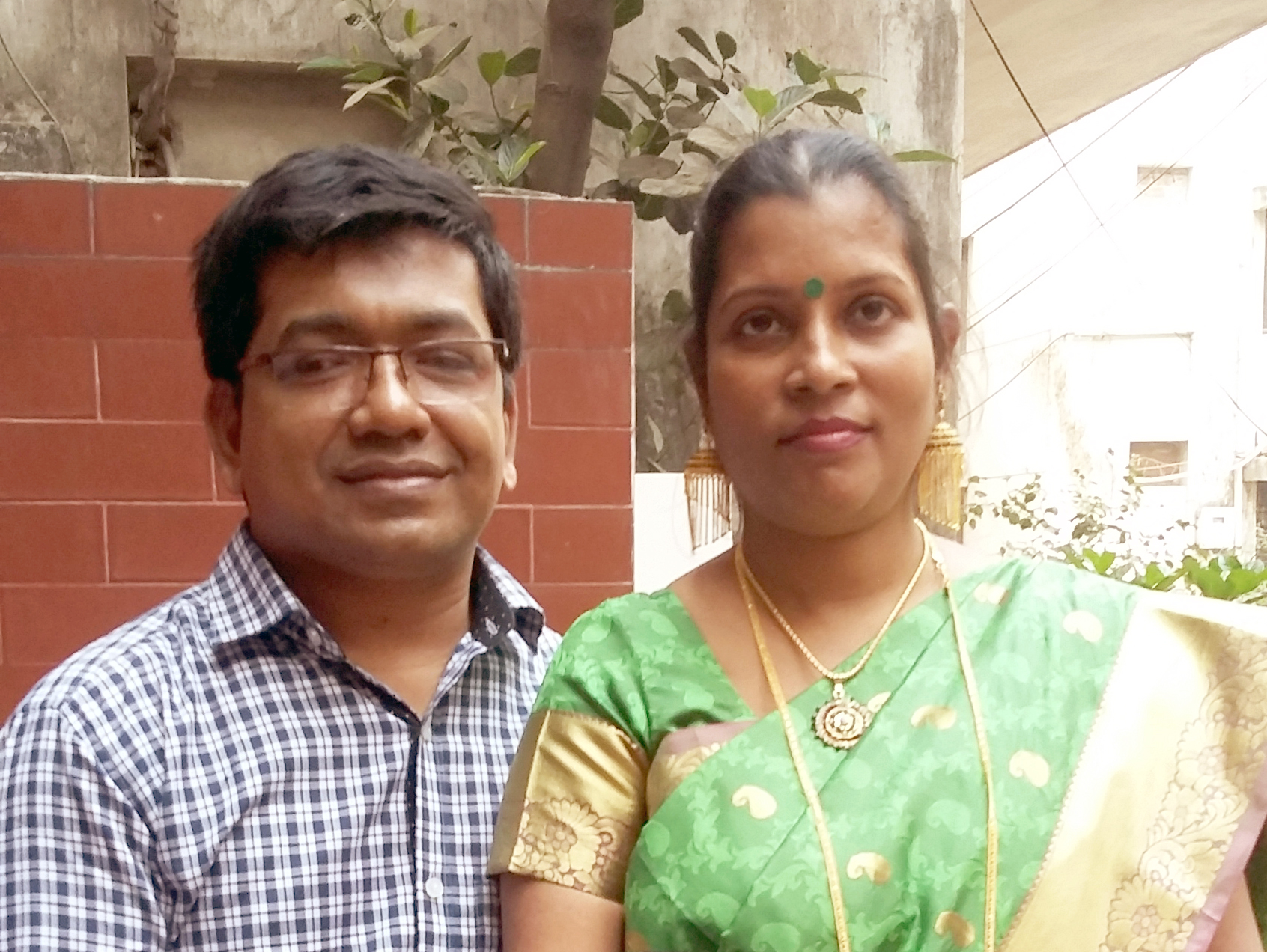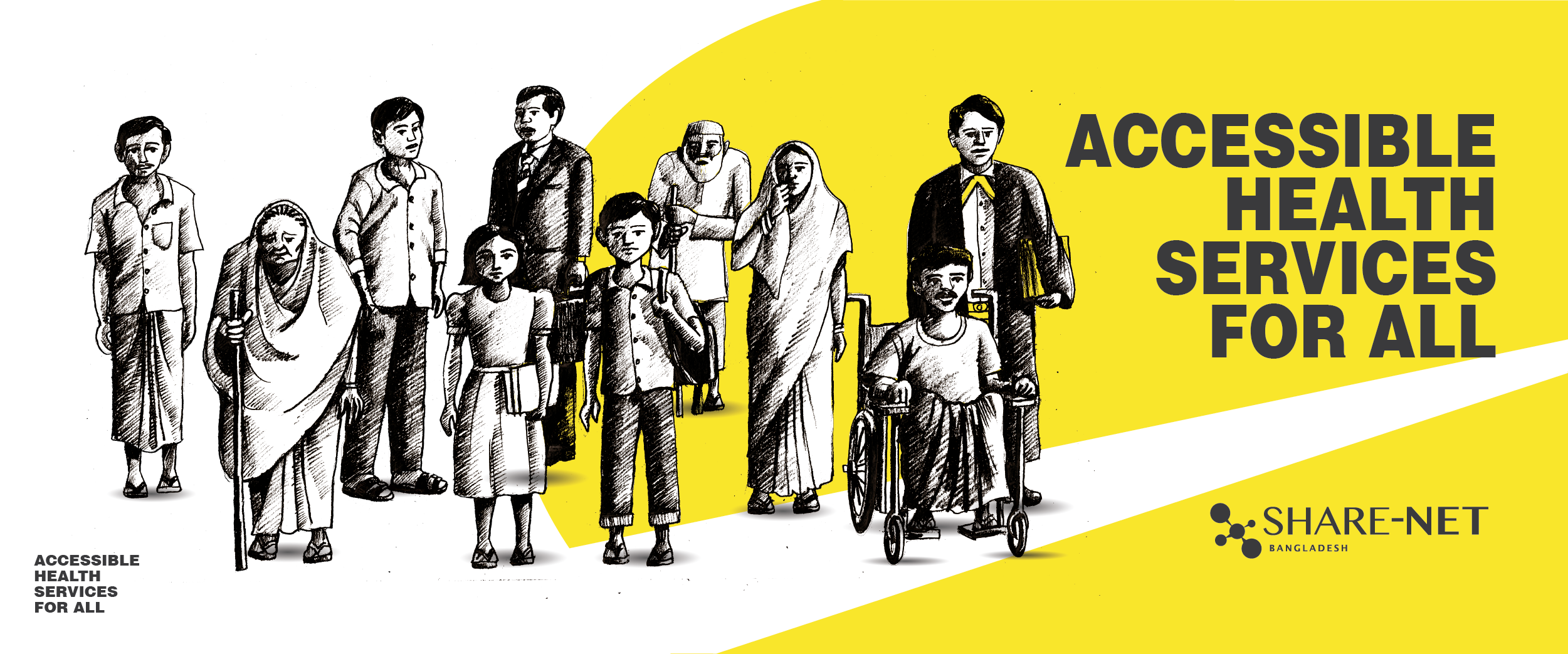Turning Point is a result of personal experiences of discrimination and humiliation
Health Care for all in Bangladesh
“I am a man with proper education, but still face discrimination. One just can’t imagine the position and condition of disabled women. Nobody cares about their basic needs, let alone sexual needs and rights” , says Jibon William Gomes, the Executive Director of Turning Point Foundation Bangladesh and a person with disabilities.
He has been facing discrimination and humiliation since his childhood. He got his education on Psychology and Development Studies from prestigious universities in Bangladesh. But still his mother had to spend a lot of time and effort to find a bride for him.
The society made him feel that disabled people are not able to live conjugal life or be a father or a mother. He wanted to prove that the existing stereotypes are wrong. He went through medical check-ups and got married to Olivia, who is not a disabled person. Olivia worked for an organization for handicapped people, and she also felt that the stigma of disabled people had to be destroyed.
The couple works together for improving the lives of disabled people and ensuring the basic human rights for people with disabilities, especially the right of getting married and get a family life.

Jibon and his wife Olivia founded Turning Point Bangladesh in 2010
Turning Point is now focusing on
# Capacity development at organizational and individual level
# Human rights and advocacy to promote diversity, equity and inclusion
# Poverty reduction, livelihood and socio-economic development
# Men- women relationship (gender)
# Access to justice, rule of law and peace building
# Health related issues including sexual and reproductive health and rights (SRHR)
# Inclusive education and independent living for children with disabilities
# Institution building (CSOs, DPOs, Independent Living Centers)
# Disaster risk Reduction (DRR), Environment protection and climate change adaption
Future Plans
According to Olivia and William, the hardest challenge for changing the existing situation of disabled people’s needs and rights is religion. They had to go through a terrible conflict with the church and the priest when they decided to get married. In our society, people usually don’t want to scrutinize the religious institutions like mosque or church.
Olivia and William face barriers every time they try to make people aware of the human rights of handicapped people.
They plan to get rid of dependency on the donors by capacity building among the people they work with. In Turning Point, they maintain 50-50 ratio of men-women and disabled-not disabled people, so that they can go one step ahead of mainstreaming disabled people. They encourage married couples to work together in their organization.
Further, they plan to work in a Gucchagram a home for 300 people suffering from leper.
They hope that in the future they will be able to offer a turning point for these vulnerable people.
Sexual and Reproductive Health and Rights (SRHR)
Sexual and Reproductive Health and Rights (SRHR) is a comparatively new issue in Bangladesh but many NGOs and Development Organizations have been working on it for nearly a decade. Share-net Bangladesh visited Turning Point Foundation Bangladesh which focus on SRHR and take policies into their projects.
Health care in Bangladesh
Bangladesh is an overpopulated country with – surprisingly enough – a relatively extensive health infrastructure. The country has eight administrative divisions, and the districts under the divisions are divided into upazilas.
Under the upazilas are unions that are under the local government. There are Union Health and Family Welfare Centers in each union. Each union health care center has staff including Medical Assistant and Family Welfare Visitor.
The health care system is controlled by the Ministry of Health and Family Welfare (MOHFW). MOHFW is divided into two wings, one works with population and family planning and the other with other health issues.
But the ministry is not able to provide family planning and reproductive health care. Several NGOs and private sector health service clinics have been working on these issues since the independence of Bangladesh.
Several studies and research papers state reasons for the government not being able to provide complete health care for all.. Regardless of the area they live in, whether it is rural or urban, poor people are mostly deprived of accessibility of health care service.
Challenges
The challenges of the health care sectors are
# Population Growth
# Poverty
# Changes in the Spectrum of Diseases
# Lack of Monitoring and Accountability
# Corruption
# Administrative Mismanagement
# Insufficient Budget Allocation
# Poor Health Knowledge
# Lack of Coordination




Despite having written quality enough to be appreciated, I am going straight to the critique. It is all about the pattern of construction made by language which refers our mindset. The author has written the most inspirational story of Mr. Jibon Gomes, a person with cerebral palsy meanwhile he or she has addressed persons as CAP in their HAND. Please don’t get disappoint or distract. It is not the authors individual problem. Actually, it reflects what society think about it. what is socially constructed about the image of person with disabilities. It is nothing more charity. Thus we find “Disabled People”, “Handicap” and all that; where UNCRPD declared “Persons with Disabilities” is the right terminology.
Thank you Share-Net Team for such an enthusiastic writes up which is not inspirational only but the discussed fact is very common with a person who have disabilities. It is very important to recognize SRHR of persons with disabilities into mainsream policies and practices. Changing typical mindset, derogatory behavior, ensuring accessibility and reasonable accommodation can ensure addressing the issue in mainstream.